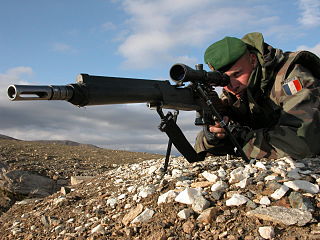United Nations Security Council Resolution 1746, adopted unanimously on March 23, 2007, after reaffirming all resolutions on the situation in Afghanistan, including resolutions 1659 (2006) and 1662 (2006), the Council extended the mandate of the United Nations Assistance Mission in Afghanistan (UNAMA) for an additional period of twelve months, until March 23, 2008.

United Nations Security Council Resolution 1917, adopted unanimously on March 22, 2010, after recalling its previous resolutions on Afghanistan, in particular resolutions 1868 (2009), 1662 (2006) and 1659 (2006), the Council extended the mandate of the United Nations Assistance Mission in Afghanistan (UNAMA) until March 23, 2011 and realigned its mandate to assist with government-led recovery efforts.

United Nations Security Council resolution 1386, adopted unanimously on 20 December 2001, after reaffirming all resolutions on the situation in Afghanistan, particularly resolutions 1378 (2001) and 1383 (2001), the Council authorised the establishment of the International Security Assistance Force (ISAF) to assist the Afghan Interim Authority in the maintenance of security in Kabul and surrounding areas. It was the final Security Council resolution adopted in 2001.

United Nations Security Council resolution 1413, adopted unanimously on 23 May 2002, after reaffirming all resolutions on the situation in Afghanistan, particularly Resolution 1386 (2001) and resolutions 1368 (2001) and 1373 (2001) on terrorism, the council extended the authorisation of the International Security Assistance Force (ISAF) for an additional six months beyond 20 June 2002.
United Nations Security Council resolution 1444, adopted unanimously on 27 November 2002, after reaffirming all resolutions on the situation in Afghanistan, particularly resolutions 1386 (2001) and 1413 (2002) and resolutions 1368 (2001) and 1373 (2001) on terrorism, the council extended the authorisation of the International Security Assistance Force (ISAF) for a period of one year beyond 20 December 2002.

United Nations Security Council resolution 1471, adopted unanimously on 28 March 2003, after reaffirming all resolutions on the situation in Afghanistan, the Council extended the mandate of the United Nations Assistance Mission in Afghanistan (UNAMA) for an additional period of twelve months until 28 March 2004.

United Nations Security Council resolution 1510, adopted unanimously on 13 October 2003, after reaffirming all resolutions on the situation in Afghanistan, particularly resolutions 1386 (2001), 1413 (2002) and 1444 (2002), and resolutions 1368 (2001) and 1373 (2001) on terrorism, the council extended the authorisation of the International Security Assistance Force (ISAF) for a period of one year and expanded its operations outside the capital Kabul to other areas.
United Nations Security Council Resolution 1943, adopted unanimously on October 13, 2010, after reaffirming all resolutions on the situation in Afghanistan and terrorism, including resolutions 1267 (1999), 1368 (2001), 1373 (2001), 1386 (2001), 1510 (2003), 1822 (2008), 1833 (2008), 1890 (2009), 1904 (2009) and 1917 (2010), the Council extended the authorisation of the International Security Assistance Force (ISAF) operating in the country for a period of one year.

United Nations Security Council resolution 1563, adopted unanimously on 17 September 2004, after reaffirming all resolutions on the situation in Afghanistan, particularly resolutions 1386 (2001), 1413 (2002), 1444 (2002) and 1510 (2003), and resolutions 1368 (2001) and 1373 (2001) on terrorism, the council extended the authorisation of the International Security Assistance Force (ISAF) for a further period of one year.

United Nations Security Council resolution 1589, adopted unanimously on 24 March 2005, after reaffirming all resolutions on the situation in Afghanistan, particularly Resolution 1536 (2004), the council extended the mandate of the United Nations Assistance Mission in Afghanistan (UNAMA) for an additional period of twelve months until 24 March 2006.

United Nations Security Council resolution 1623, adopted unanimously on 13 September 2005, after reaffirming all resolutions on the situation in Afghanistan, particularly resolutions 1386 (2001), 1413 (2002), 1444 (2002), 1510 (2003) and 1563 (2004), and resolutions 1368 (2001) and 1373 (2001) on terrorism, the council extended the authorisation of the International Security Assistance Force (ISAF) until mid-October 2006.

United Nations Security Council Resolution 1974, adopted unanimously on March 22, 2011, after recalling previous resolutions on Afghanistan, in particular 1917 (2010), the Council extended the mandate of the United Nations Assistance Mission in Afghanistan (UNAMA) for a period of one year until March 23, 2012.

United Nations Security Council Resolution 1659, adopted unanimously on February 15, 2006, after recalling previous resolutions on the situation in Afghanistan, particularly resolutions 1378 (2001), 1383 (2001) and 1589 (2005), the Council endorsed the "Afghanistan Compact" between the Afghan government and international community concerning the future of the country.

United Nations Security Council Resolution 1662, adopted unanimously on March 23, 2006, after reaffirming all resolutions on the situation in Afghanistan, including resolutions 1589 (2005) and 1659 (2006), the Council extended the mandate of the United Nations Assistance Mission in Afghanistan (UNAMA) for an additional period of twelve months.

United Nations Security Council Resolution 1707, adopted unanimously on September 12, 2006, after reaffirming all resolutions on the situation in Afghanistan, particularly resolutions 1386 (2001), 1413 (2002), 1444 (2002), 1510 (2003), 1563 (2004), 1623 (2005) and 1659 (2006) and resolutions 1368 (2001) and 1373 (2001) on terrorism, the Council extended the authorisation of the International Security Assistance Force (ISAF) until mid-October 2007.

United Nations Security Council Resolution 2011 was unanimously adopted on 12 October 2011.
United Nations Security Council Resolution 1776 was adopted on 19 September 2007.
United Nations Security Council Resolution 1833 was unanimously adopted on 22 September 2008.
United Nations Security Council Resolution 1806 was unanimously adopted on 20 March 2008.

United Nations Security Council Resolution 2120 was adopted unanimously on 10 October 2013.












